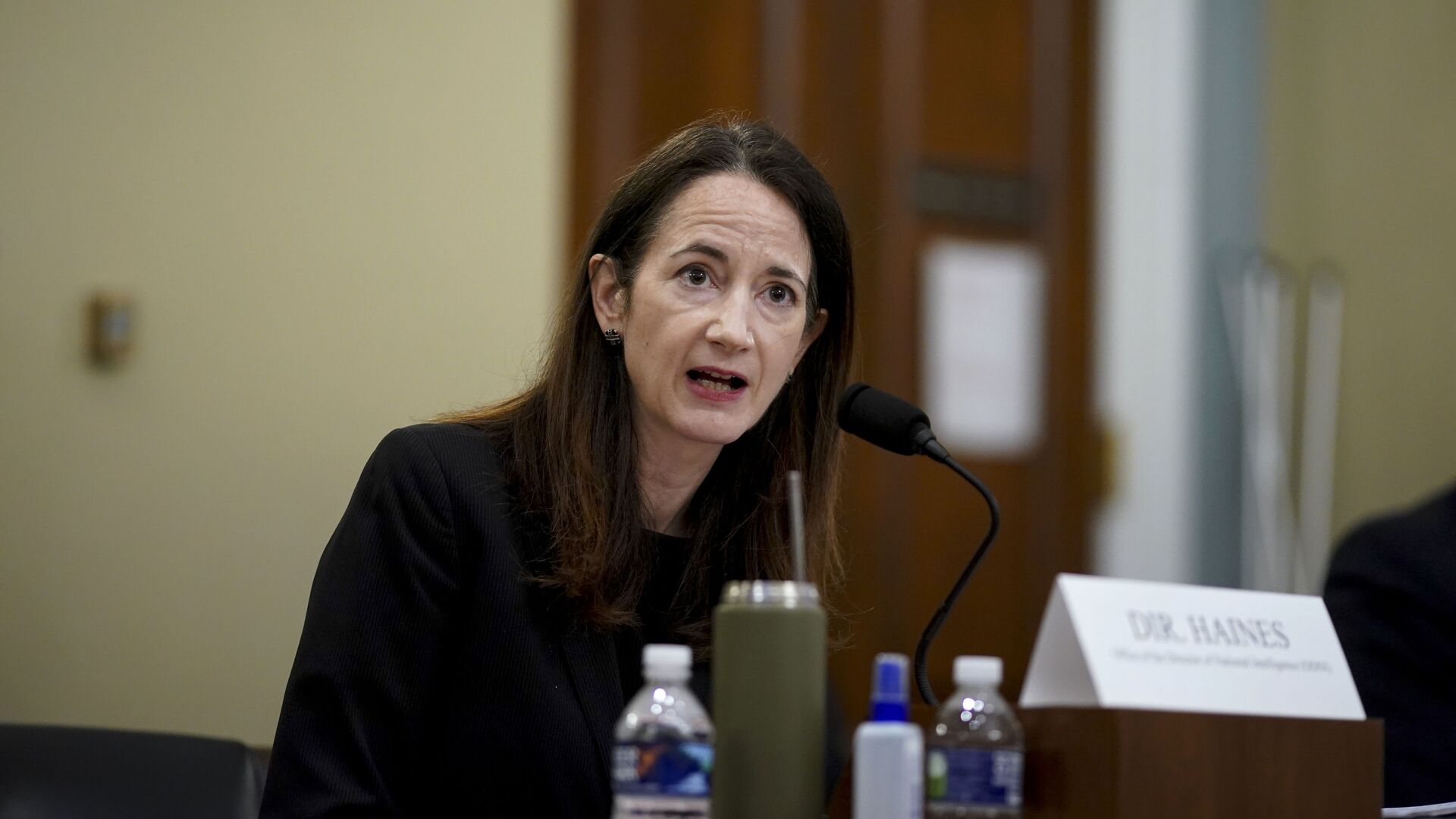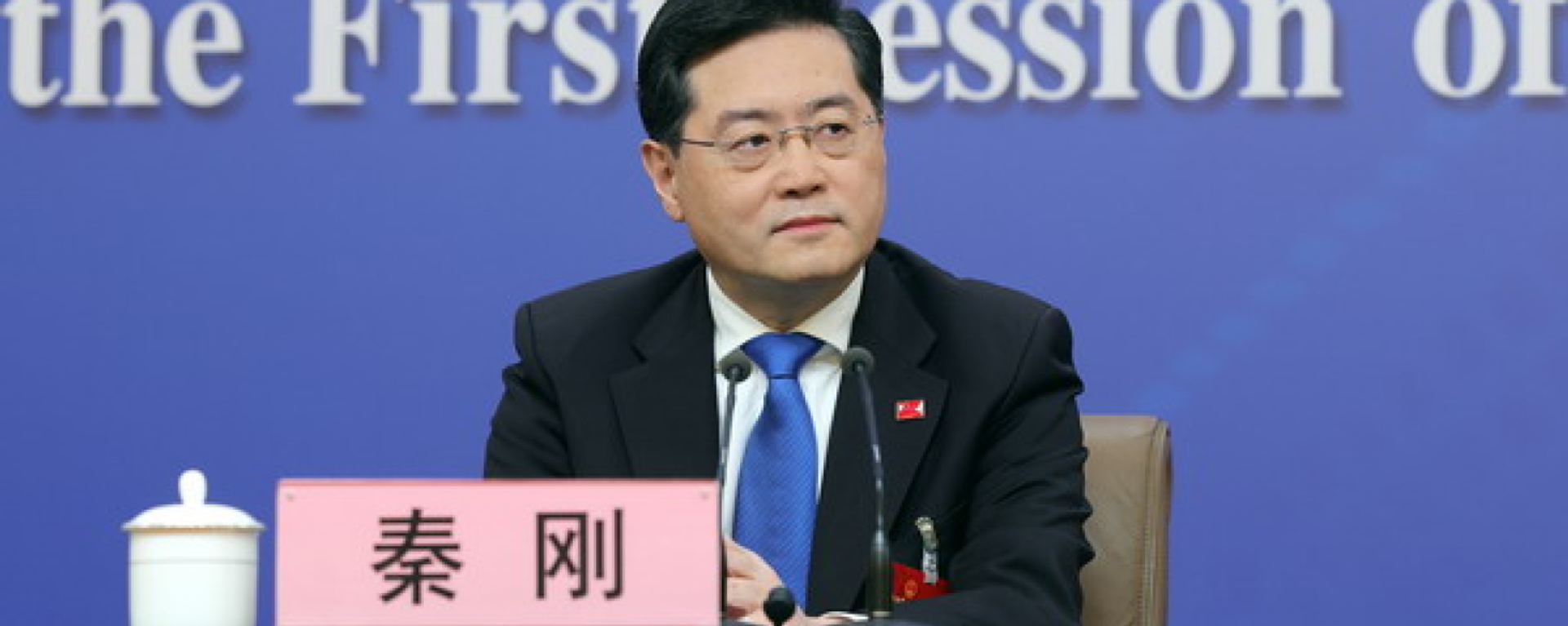US Intel Chief Haines Tells Congress ‘Not Our Assessment’ That China Wants War Over Taiwan
21:09 GMT 10.03.2023 (Updated: 12:46 GMT 19.06.2023)

© AP Photo / Al Drago
Subscribe
The US has claimed for years that a Chinese invasion of Taiwan was likely, and put significant money and effort into bolstering its support for the Taipei government, including weapons sales and provocative official visits that have infuriated the Chinese government.
A day after Chinese President Xi Jinping asserted the Communist Party of China’s goal of reunifying Taiwan with the mainland, Avril Haines, the US Director of National Intelligence (DNI), told Congress Beijing did not want to go to war over the autonomous island.
“It’s not our assessment that China wants to go to war,” Haines told the House Intelligence Committee during an annual briefing on Friday on worldwide threats faced by the United States.
The independently-governed island has remained outside the control of the People’s Republic of China since the socialist state’s founding in 1949, thanks in large part to US support, which blocked the People’s Liberation Army from being able to cross the Taiwan Strait. Still, the land has long been part of China, and Beijing has conditioned its international relations on a “One China” policy. It regards US support for the government in Taipei as interference in internal Chinese affairs.
Asked about Haines’ comments on Friday, Chinese Foreign Ministry spokesperson Mao Ning told reporters that “Taiwan is an inalienable part of China’s territory. Resolving the Taiwan question is a matter for the Chinese and must be decided by Chinese ourselves.”
“We urge the US to abide by the one-China principle and the three China-US joint communiqués, deliver on US leaders’ commitment of not supporting ‘Taiwan independence’ or ‘two Chinas’ or ‘one China, one Taiwan,’” Mao added. “Stop all forms of official interaction with Taiwan, stop upgrading its substantive exchanges with the region, and stop obscuring and hollowing out the one-China principle.”
In 2018, the White House and Pentagon identified “great power competition” with Russia and China as its primary strategic focus in the coming period, warning the two nations are hell-bent on undermining what the US calls the “rules-based international order,” atop which it has sat since World War II. Supporting Taiwan, with which the US has only had unofficial relations since 1979, is a key factor in that strategy, and the US has dramatically increased its weapons sales to Taiwan and sent prominent politicians to visit, flouting Beijing’s warnings.
“The People’s Republic of China, which is increasingly challenging the United States economically, technologically, politically and militarily around the world, remains our unparalleled priority,” Haines warned Congress on Friday.
Asked about Beijing’s deepening friendship with Moscow, the DNI said she thought it had “some limitations” but warned it was not a temporary marriage of convenience, either.
“We don’t see them becoming allies, the way we are with allies in NATO,” Haines said, referring to the Brussels-based collective defense alliance.
William Burns, the director of the US Central Intelligence Agency (CIA), also told lawmakers Xi was “sobered” by the course of Russia’s special operation in Ukraine.
“That’s something that President Xi has to weigh as he comes out of Zero Covid, tries to restore Chinese economic growth, tries to engage with the rest of the global economy,” Burns said. The spy chief added that he would “never underestimate the ambitions of the current Chinese leadership in that regard or their determination” to bring Taiwan back under Beijing’s control.
In late 2021, the CIA opened a special top-level working group, dubbed the China Mission Center, to focus on espionage and counter-espionage against the socialist state. Upon its launching, Burns characterized China as an even more formidable rival than the Soviet Union had been during the 20th century, because of its size and the deep entwining of the US and Chinese economies.
Their assessment comes after Chinese President Xi Jinping, unanimously elected to a third term on Friday by the National People’s Congress, warned earlier this week that “Western countries led by the United States have implemented all-around containment, encirclement and suppression of China, which has brought unprecedented severe challenges to our country’s development.”





